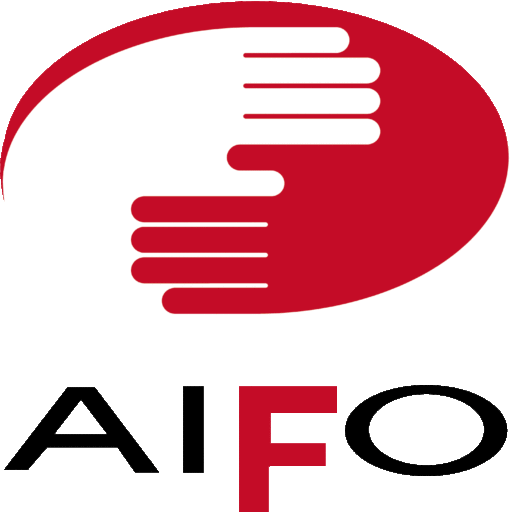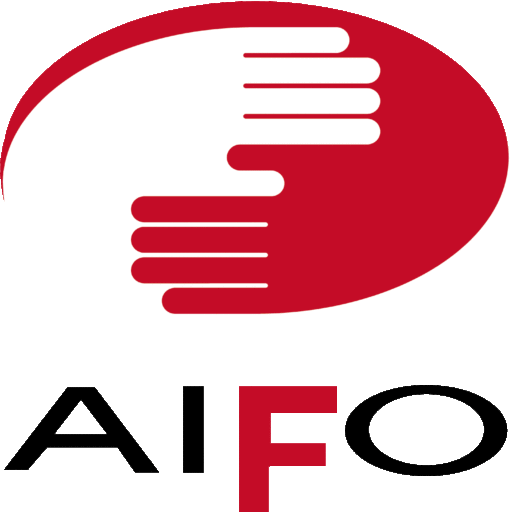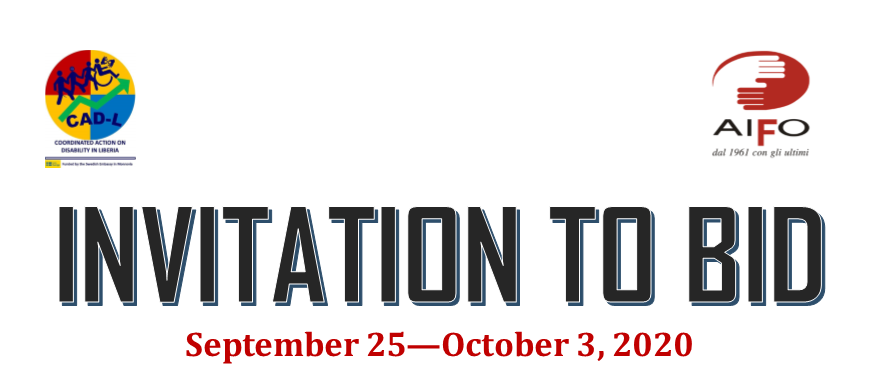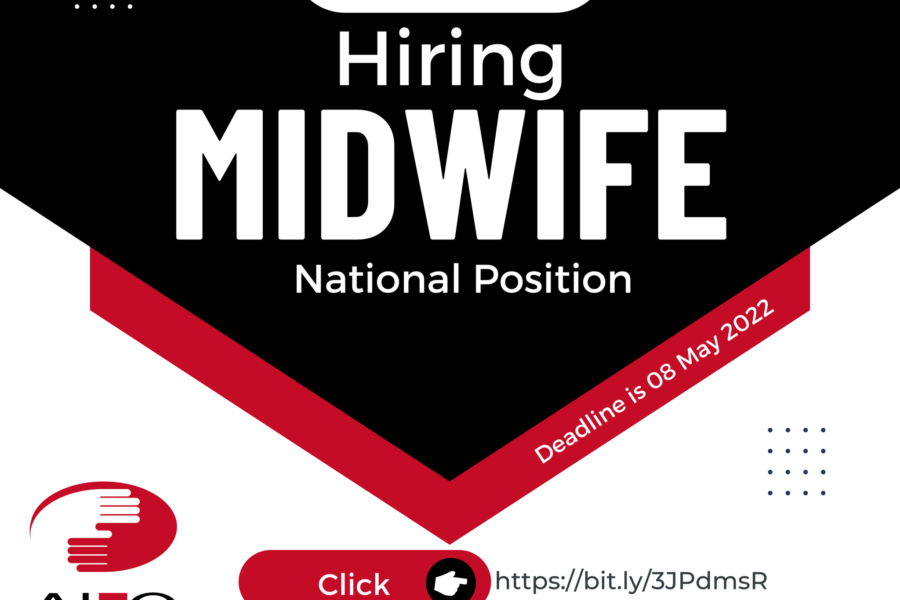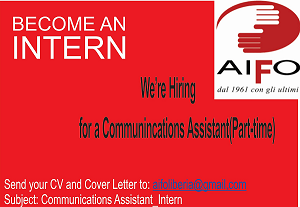Invitation to Bid
Project CAD-L 13206
Coordinated Action on Disability in Liberia (CAD-L)
Consultancy Survey on the Impact of COVID-19 on PWD and their Economic Independence
Issued on: 25 September 2020
Deadline for Application: 03 October 2020
Background information
AIFO is an International NGO with headquarters in Bologna, Italy, working in the field of international health cooperation and disability since 1961. AIFO operates in Liberia since 1997. AIFO Liberia’s mission focuses on the promotion of disability rights, building the capacity of local Disabled People Organizations (DPOs) and on fostering economic independence for People with Disabilities (PWDs).
The Swedish (SIDA 2016 – 2020) strategy for development cooperation in Liberia poses distinct attention to gender equality, respect of human rights and democracy, as critical principles backing the enjoyment of development and developmental programs in the country. The strategy also recognizes the need to work with duty bearers (the state) and right holders (the citizenry) to ensure development programs are demand-driven, transparent, sustainable and locally owned.
With overarching strategic direction, AIFO and SIDA entered an agreement in December of 2019, for the development of a proposal for an action promoting the human rights of people with disability in Liberia. The agreement decided on an inception phase of one year, which extended by two months due to the global crisis, COVID-19. The activities started in January of 2020. One of the major activities of project under Intermediate Outcome 2, output 2 (Promoted strategic partnership and networking among selected duty bearers and CSOs to monitor and report on barriers faced by PWDs engaging in employment and self-employment initiatives. The Result Framework will be provided), was a survey on the economic independence of persons with disabilities, PWDs. The survey will serve to inform strategic direction for engaging duty bearers and policy makers in relations to the different types of barriers faced by PWDs when attempting to gain employment, self- employment, and economic independence and consequently influence policy direction for greater employment opportunities for PWDs. Additionally, the survey will also provide a snapshot of data on employment and self-employment, to inform output 2.2 indicator “% of PWDs employed, self-employed and engaged in business in the areas of operation”.
Also, given the new challenges presented by the global pandemic-COVID-19, the survey will in addition consider the impact of the pandemic and of the measures imposed to curb it, on PWDs and on their employability and self-employability. PWDs are often more affected by conflicts and crisis and their needs often left unattended to.
AIFO is, therefore, hiring the expertise of a consultant/firm who will conduct a survey on The Economic Independence of PWDs and Impact of COVID-19 on PWDs in Liberia; using the stipulated areas mentioned in this document as survey location.
General Goal:
The overall goal is to influence policy decisions for the inclusion of the needs of PWDs in the COVID-19 response, future emergencies, and improvement of economic opportunities for persons living with Disabilities in Liberia.
Information derived will also:
- Provide baseline information to support the development of targets for monitoring and impact evaluation of CAD-L;
- Build the capacity of CAD-L’s partners to collect and interpret data and use data for the formulation of internal policies and programming;
- Contribute to knowledge creation and sharing to inform the formulation of national policies, strategies, and programs;
- Promote ownership of data, further analyses and dissemination of findings related to the disabled community by NCD and LISGIS (through NCD).
Objective(s) of the Survey:
- Gather information from strategic partnership and networks among selected duty bearers, (Stakeholders’ interviews) and CSOs on their perception of barriers faced by PWDs in engaging employment and self-employment initiatives.
- Develop a tool that can be adopted nationally for the collection of employment information on PWDs.
- Revise and adapt the DASU 154 SAS tool to ensure data on employment and self-employment are updated and captured, to inform output 2.2 “% of PWDs employed, self-employed and engaged in business.
- Collect data on employment, self-employment and economic activities, as well as on the impact of COVID-19 and its restriction measures on PWDS that informs advocacy and awareness raising approach by DPOs, CSO and Alliances on the constraints faced by PWDs during the current pandemic and future crisis.
- Conduct a validation workshop of relevant stakeholders; DPOs, members of tripartite alliance, duty bearers, CSO and partners to create awareness on issues identified and communicate the findings of the survey as well.
Scope of the Work:
- Desk review: all national and international policy documents/treaties related to the inclusion and work rights of PWDs will be identified and reviewed to define existing policies documents and tools in support of the arguments for PWDs economic independence or the ones contradict or undermine the article 27 of CRPD, (2006)
- A purposeful sample of respondents/participants will include, tripartite alliance related to work rights, duty bearers, (Ministry of Labor, Gender, Justice, etc), DPOs, organizations of women with disabilities, (OWWDs), Network of NGOs working on Disability and work rights and promotion, PWDs, parents and/or relatives of PWDs, umbrella organizations of PWDs, (CSOs and Government), and other relevant stakeholders identified during the process of identification of respondents.
- Development of questionnaires. The questionnaires will consider a number of issues, the perspectives of PWDs and DPOs as it relates to barriers faced, the perspectives of duty bearers and NGOs working on work rights and inclusion of PWDs, a look at the different types of barriers PWDS faced when engaging in employment, self-employment and economic initiatives, knowledge on policies and policy gaps, information on the number of PWDs employed or self-employed or engaged in business, national responses to the issue and instruments on disability inclusion, a tool that identifies the types of disabilities to be considered in the survey and ways to identify them, (DASU 154 SAS tool), previous and additional challenges faced by PWDs during the pandemic, and COVID-19 (and restrictions) impact on PWDs: health, wellbeing, socialization AND economic activities
- Gathering of data: the consultant will conduct interviews with all respondents by focus group discussions, phone, email, or key informant interviews.
- Data: review findings and propose final indicators for PWDs employment and self-employment and definition of indicators, as well as baseline data for the counties where CAD-L operates (data will be analyzed and interpreted by the consultant, and recommendations provided. This data analysis will includeCOVID-19 data
- Stakeholders’ Validation Workshop: a workshop of stakeholders to include the tripartite partners, (MOL, Liberia Labor Congress, Liberia Chambers of Commerce), DPOs, Ministry of Gender, Ministry of Justice, NUOD, NCD, PWDS, etc. will serve as a space to create awareness on PWDs economic independence and barriers they faced when engaging employment, self-employment and business opportunities/initiatives and the impact of COVID-19 on PWDs, and present the findings of the survey.
- Ethics approval. The consultant will draft and submit a survey protocol to the relevant research ethics body in the country and obtain ethics approval for the conduct of the survey.
Approach and Methods
Consistent with the Community Based Inclusion Approach adopted in the project, survey will be participatory and carried out using mixed methodologies (co-evaluations), both quantitative and qualitative (focus groups, interviews, survey).
.
Location: The consultant is expected to work across the three localities where the CAD-L project is being implemented: Montserrado (greater Monrovia), Nimba and Bong counties.
The survey consists of several phases:
Contract and Kick-off meeting: Contract is signed and a discussion of the assignment takes place. First documents, including available data, are provided to the surveying team. (2 day)
Desk Study: The consultant shall review all necessary project documents provided and analyze and interpret existing data. (8 working days)
Data-collection phase
The field trip will only take place upon official approval of the inception report by the contractor.
Field-phase: Interviews with identified key stakeholders and PWDs (15 working days)
Data need to be gathered, analysed and interpreted. It is expected that the survey will include quantitative and qualitative data disaggregated by sex, type of disability, age, catchment areas. (7days)
Presentation (workshop): Presentation of key findings at the end of the survey, to include documentation and a one-day workshop to present findings to relevant stakeholders (2 days)
Final Draft Report: Submission and presentation of final draft report. Inclusion of comments from partners and contractor. (5 days)
Final Report: Submission of final report. (2 day)
For the different phases, it is expected that data and information will be obtained through different methods such as: analysis of documents, structured interviews, semi-structured interviews face-to face, group discussions, others
Reports & Material
The consultant will submit the following reports:
- an inception report in all formats as word, excel, PPT,. (10-15 pages without annexes),
- a detailed workplan specifying the entire schedule of activities.
- guidelines and set of (revised) tools for routine monitoring of CAD-L outputs and outcomes on economic independence, percentage of PWDs employed, self-employed and in business.
- Ethics approval letter.
- a final draft survey report (about 25-30 pages without annexes), including a draft executive summary and the results-assessment form (part of the reporting requirement)
- and the final survey report (25-30 pages without annexes), the final executive summary and the results-assessment form (part of the reporting requirement)
- A comprehensive PowerPoint presentation of the survey.
All reports must be written in English.
All data collected must be disaggregated by sex, age, disability type and catchment areas.
Identify lessons learned and provide recommendations: it is important that a suggested action plan corresponding to each recommendation is included in the survey report. It is expected that the consultant will present concrete recommendations addressed to each specific stakeholders. The findings and recommendations of the draft final report and final report have to be structured according to the survey questions. An outline of the report’s structure needs to be agreed upon during the inception phase.
The executive summary should summarize key findings and recommendations (two to three pages) and needs to be submitted as part of the final draft report.
Required qualifications of consultant/collaborator
Interested individuals/institutions/firms should possess:
- Proven experience of developing/validating indicators of similar nature and magnitude
- Relevant academic degree (master level) in economics, statistics, sociology or other similar studies
- A minimum of three years’ experience and expertise in social research
- Has conducted at least three similar surveys in the last five years ideally in the relevant field
- Knowledge and working experience of Liberia with focus on topics such as disability, socio-economic inclusion, awareness campaigns
- Experience on issues related to disability rights and equality and economic independence of PWDs
- Experience and expertise in evaluating/analysing cross-cutting issues
- Experience in social science methods
- Excellent oral and written English skills
HOW TO APPLY
to: aifoliberia@gmail.com indicating in the subject of the email: Application for Consultant. Please also include report of previous evaluation done by you and a proposal for the task.
We apologize in advance but only shortlisted candidates will be contacted for interview. We encourage applicants to submit the application well before the deadline date. The selection respects the principles of equal opportunities (Law 903/77)
